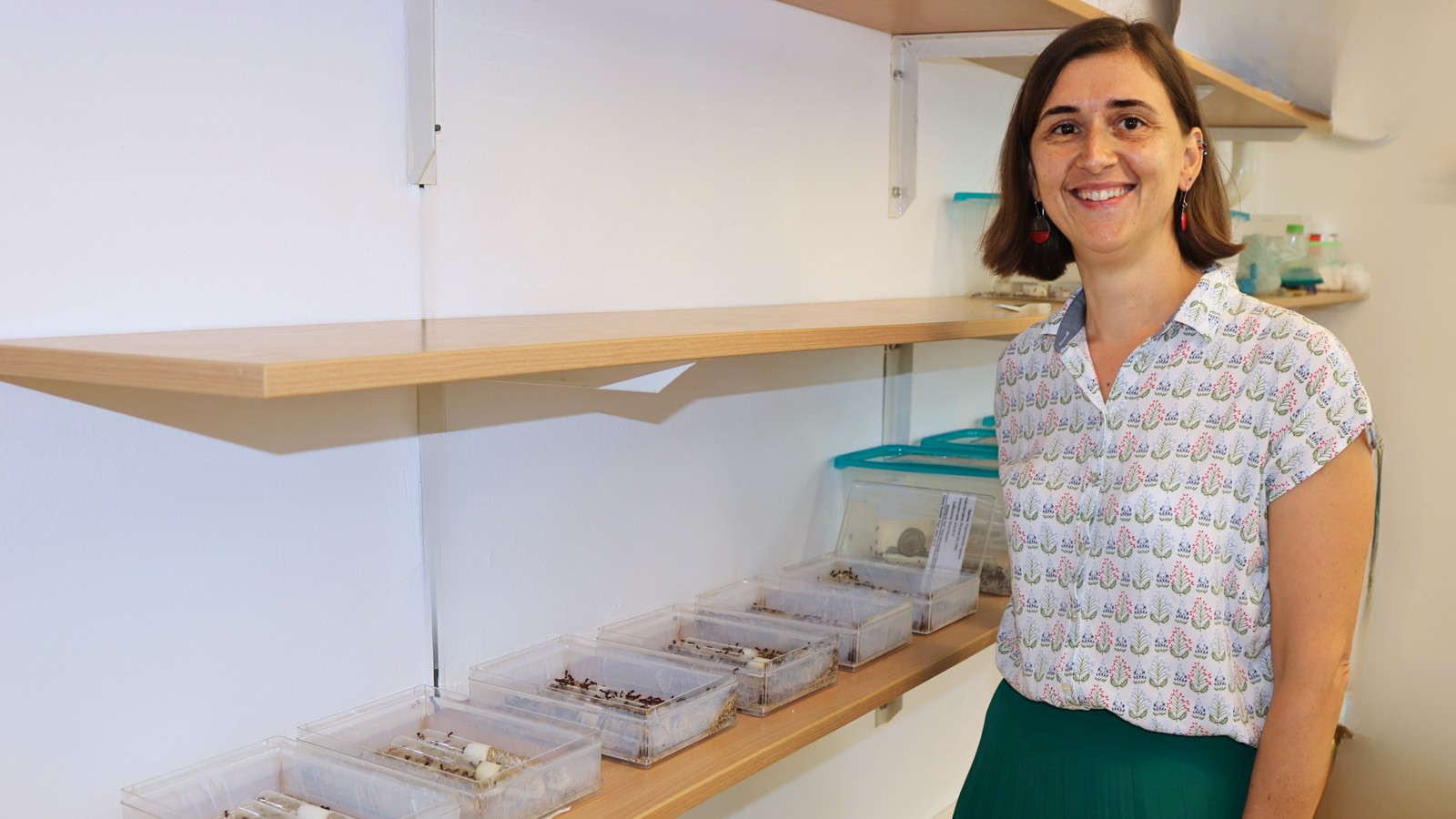Dr. Jelena Bujan Awarded ERC Starting Grant for Ant Research Amid Global Climate Challenges

Dr. Jelena Bujan of the Ruđer Bošković Institute (RBI) has secured a prestigious European Research Council (ERC) Starting Grant. With funding of €1.5 million, her innovative research aims to uncover how ants adapt to extreme temperatures caused by global warming. This funding is part of a larger initiative by the European Research Council, which disbursed nearly €780 million this year to support pioneering young scientists across Europe under the EU Horizon Europe programme.
Dr. Bujan's project, titled "Islands as natural laboratories of global warming: discovering insects’ ability to survive thermal extremes (IGNITE)," is set to explore the resilience of ants to rising global temperatures, a pressing concern as Europe faces increasingly severe heatwaves.
Selected from a field of 3,474 proposals, the IGNITE project stands out for its innovative approach to studying the subtle yet profound ways ants adjust to their heating environments. These insects, vital for their ecological roles in soil aeration, seed dispersion, and nutrient cycling, are more than just laborers of the earth, they are sentinels of environmental change. Their complex social structures and adaptability features make them perfect subjects for investigating the broader implications of temperature fluctuations on biodiversity.
"We're using ants as model organisms to probe into the strategies they employ to cope with extreme heat. This includes observing their behavioural shifts, such as relocating from excessively hot areas, and their physiological adaptations to new environmental stresses," explains Dr. Jelena Bujan, principal investigator from the Laboratory for physical oceanography and chemistry of aquatic systems of the RBI Division for Marine and Environmental Research.
The Adriatic Islands as a Unique Natural Experiment Setting
The IGNITE project aims to unravel these adaptive mechanisms, which are crucial for predicting how ecosystems might withstand or falter under the pressures of climate change.
The research will primarily be conducted on the Adriatic islands, which present a range of microclimates from the cooler northern to the warmer southern regions. These diverse conditions provide an ideal setting for Dr. Bujan and her team to monitor ant populations and study their responses to variable temperatures. "We are especially interested in seeing if ants in more stable climates show less flexibility in coping with sudden temperature changes," Dr. Bujan adds, highlighting the potential of her study to impact ecological predictions and conservation strategies.
Practical Implications and Broader Impact
The research goes beyond basic science. In collaboration with Dr. Clea Denamiel, also from the RBI Division for Marine and Environmental Research, Dr. Bujan and her team plan to develop a predictive model known as IslaClim. This tool will be specifically designed for the Adriatic islands. In the near future they hope this model could assist in anticipating microclimatic changes and potentially aiding agricultural planning and conservation efforts.
Dr. Bujan’s journey, beginning with her doctoral studies at the University of Oklahoma, through postdoctoral research in Panama in collaboration with the Smithsonian Tropical Research Institute, and further experiences in Switzerland, has equipped her with a broad and nuanced perspective on ecological research.
Now back in Croatia, thanks to the ERC grant, she will establish her own research group, hire staff, and acquire the necessary equipment to carry out this ambitious project.
Starting Grants amount to €1.5 million per grant for a period of five years. However, additional funds can be made available to cover costs related to moving from a country outside the EU or associated countries, the purchase of major equipment, access to large facilities or major experimental and fieldwork-related costs. The grants are estimated to create 3 160 jobs within the teams of new grantees.
Iliana Ivanova, Commissioner for Innovation, Research, Culture, Education and Youth, said: 'The European Commission is proud to support the curiosity and passion of our early-career talent under our Horizon Europe programme. The new ERC Starting Grants winners aim to deepen our understanding of the world. Their creativity is vital to finding solutions to some of the most pressing societal challenges. In this call, I am happy to see one of the highest shares of female grantees to date, a trend that I hope will continue. Congratulations to all!'
President of the European Research Council, Prof. Maria Leptin, said: ‘'Empowering researchers early on in their careers is at the heart of the mission of the ERC. I am particularly pleased to welcome UK researchers back to the ERC. They have been sorely missed over the past years. With fifty grants awarded to researchers based in the UK, this influx is good for the research community overall.'’


